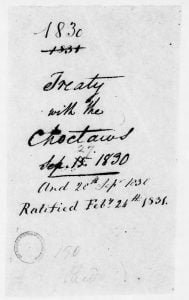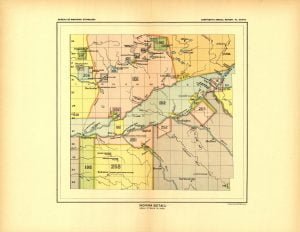Treaty of November 3, 1804
A treaty between the United States of America and the United tribes of Sac and Fox Indians. ARTICLES of a treaty made at St. Louis in the district of Louisiana between William Henry Harrison, governor of the Indiana territory and of the district of Louisiana, superintendent of Indian affairs for the said territory and district, and commissioner plenipotentiary of the United States for concluding any treaty or treaties which may be found necessary with any of the north western tribes of Indians of the one part, and the chiefs and head men of the united Sac and Fox tribes of … Read more


